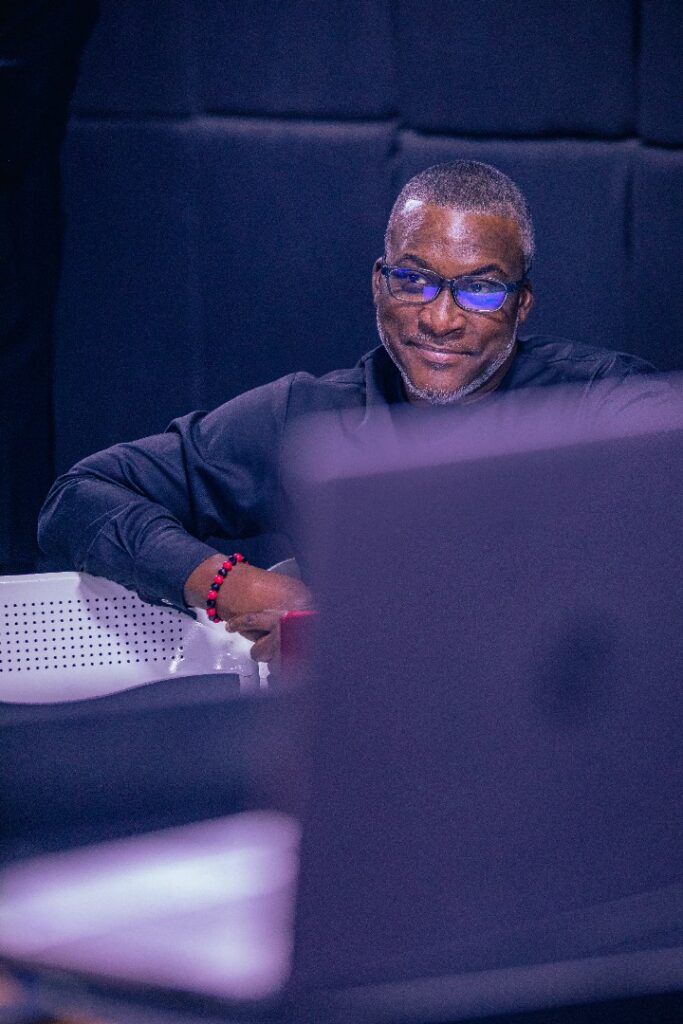With the close of a phenomenal year of cinema, it seems customary to touch on what African film has doled out in terms of standout spectacles of art, especially in recent months. In true Nigerian style, the end of 2023 saw the ever-burgeoning film industry give us, “The Black Book†and “Blood Vesselâ€, both of which slammed onto Netflix showcasing their cinematic brilliance and the advancement of African cinema that is now drawing in wider, global audiences with its themes and characters that cut across borders.
More traditional Nigerian folklore has also been charging headlines across the globe, including “Mami Wataâ€. “Mami Wataâ€, which is based on West African folklore, is really an interesting piece of artistry, a novel black-and-white fantasy thriller film written and directed by C.J. Obasi, the film premiered at the 2023 Sundance Film Festival, marking Obasi‘s third feature to screen at Sundance, a co-production between Nigeria, France and the United Kingdom. The release has also come with critical acclaim internationally. Variety Magazine called the film “A stark black-and-white Oscar entry that weaves a bewitching fable with haunting images”.
Nigerian filmmakers are not shy of collaboration, with co-productions becoming increasingly popular, notably with diaspora effortlessly shaping the storytelling narrative. I spoke with one of the essential contributors, contributing to the efforts of its expansion: Emil Garuba, screenwriter, filmmaker, and director.

Emil provided us some insights, as we discussed the film landscape within Nigeria. Emil Garuba is a special kind of filmmaker, currently based in Abuja, Nigeria, he studied Political Science and Creative Writing at the University of Central Oklahoma before pursuing a career as a professional screenwriter, having spent most of his formative years in the USA.
He tells me in his own words, that “Nollywood has witnessed significant successes and challenges in the past decade but, there has been a remarkable increase in box office earnings, exemplified by blockbuster hits such as “Battle on Buka Streetâ€, “Omo Ghetto: The Sagaâ€, and “The Wedding Party 1&2â€. With their engaging narratives and memorable casts, these films surpassed box office records, indicating a growing appetite for diverse storytelling.†The rise in popularity of Netflix and Amazon has also provided a gateway for Nigerian filmmakers to showcase their creativity globally. As seen with “Lionheartâ€, “Living in Bondage: Breaking Freeâ€, “Citationâ€, and “King of Boys†to name a few.
The Challenges Facing Nollywood
He states that of course it is not all glitz and glamor, “Challenges continue to exist, including piracy, limited funding opportunities, and infrastructural constraints. The industry needs continued support to address these issues and maintain its upward trajectory.†Though, he urges this is counteracted by the overall box office success and global streaming visibility demonstrated by Nollywood globally.
Talking of his personal journey, he muses, saying that it has been “Challenging and rewardingâ€. Having returned, after spending much of his time in the USA, he speaks of his passion for telling African stories and contributing to the cinema landscape, by creating characters that resonate with the “Nigerian experienceâ€.
Emil says that it has been nothing short of a complex task as a screenwriter, but he says he remained resilient by “aggressive networking and recommendations from those I collaborated with.†Some works to name a few, he wrote and contributed towards: Africa Magic’s “Tinsel†co-writing the 2016 AMVCA-winning feature film “Road to Yesterday” and the 2019 Netflix original “Lionheart“.
Now with his own production company and three feature films to his name, he recalls that his standout achievement was being selected for the 2023 Episodic Lab and Development Executive Trainee program with the Realness Institute in conjunction with Netflix, which has further enriched his skills and his thirst for wanting to push the Nigerian storytelling on a wider stage.
The Recipe For Success:
Nollywood, in his opinion, has mastered the ability to retain cultural authenticity, cost-effective production methods, and the strategic use of modern distribution platforms. He says that foremost, Nollywood films often resonate with local audiences by incorporating authentic cultural elements, eminent societal themes, and authentic storytelling that reflect the everyday experiences of its people.
These notions are not novel, but it’s important to be reminded of the reasons why Nigeria’s films are enjoyed by a wider pool of people, as humans we all want to feel connected to characters and stories that mirror our own lived experiences.
The Future Of Nollywood
When Asked What The Future Holds For Nollywood:
He states, that of course there will be: more growth, more international collaborations, with an emphasis and exploration of diverse narratives that appeal to even wider audiences. We could also see the advancement in technology and increased access to more sophisticated equipment to elevate production output. He also talks about the possible expansion of distribution platforms dedicated to showcasing Nigerian content, making it easier for creators to distribute and to also garner greater visibility.
Emil ends by saying: “As storytelling techniques evolve, Nollywood is poised to further contribute to the global cinematic landscape, solidifying its position as a powerhouse in African cinema.â€
Emil Garuba is a notable writer, director, filmmaker. There is an ocean of wisdom, and lived experience to understand from this creative powerhouse. There will be more coming from him in an audio interview, conducted by Azadi Ash on X. Please follow Azadi Ash and Acheampong Magazine for more updates on its airing.



